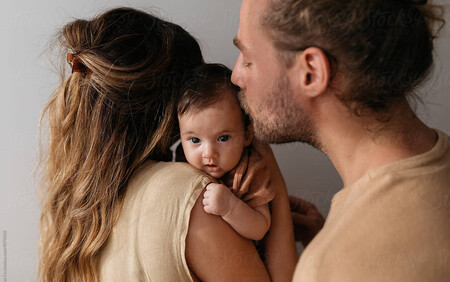
Genetics 101
Are you aware of the role genetics has to play when it comes to conceiving a healthy baby? Here, we break down some of the genetic testing options available before pregnancy. Read on to find out more.
Quick backgrounder
A human cell contains genetic material arranged in strands, called chromosomes. A healthy cell will contain 23 pairs of chromosomes. Fertilisation combines 22 chromosomes and an X chromosome from the egg with 22 chromosomes and either an X or Y chromosome from the sperm. An embryo then has 46 chromosomes – if it’s a female, with two X chromosomes, and if it’s a male, with an X and a Y chromosome.
As you can imagine, there’s a lot that needs to happen perfectly for an embryo to result in a healthy baby. In fact, up to 70 per cent of embryos – whether they’re fertilised naturally or in a laboratory – sadly don’t survive the first three months of pregnancy or aren’t successfully implanted in the uterus due to gene conditions or random chromosome variations.
A recent Australian study of 12,000 couples showed high carrier rates of Cystic Fibrosis, Spinal Muscular Atrophy and Fragile X. Screening for these conditions alone, or better, as part of a larger panel, is something you may want to consider.
Ok, so what are the genetic testing options?
Pre-conception carrier screening
We all carry genes that could result in serious disease in our children. Fortunately, most of us have good copies of those genes to keep us healthy. The problem arises when two people who, by rare chance, carry the same bad genes meet and start their family.
In this circumstance, the child is at risk of inheriting both bad genes, which could result in serious disease in the child.
Although family history can be helpful, often carriers of genetic conditions do not know they are carriers. We know 80% of babies born in Australia with a single gene genetic disorder had no family history of the condition, it is a matter of chance and who the genetic partner is.
Nowadays there are genetic panels available to screen whether or not you are a carrier of a genetic problem.
Genetic carrier screening involves either a blood test or a simple saliva test done by both partners, which is then evaluated in the lab to determine risk of passing on a genetic disease. This is because if both partners carry the recessive gene, there is a one in four chance that their child will inherit that condition.
Learn about Virtus Genetics’ new at-home genetic screening kit here.
They have in-house genetic counsellors available to explain the entire process, from initial testing to understanding the results.
For those who plan on using clinic-recruited donor sperm to help them conceive, rest assured, all donors at our Virtus Health clinics undergo carrier screening prior to donation.
What happens if both partners are carriers?
One approach is to conceive naturally and to have testing performed on the pregnancy. The advantage of this is natural conception – more fun than IVF! The drawback of this, is navigating the decision to terminate a much-wanted pregnancy if it is found to be affected by the genetic disorder.
A sophisticated scientific technique called pre-implantation genetic testing (PGT) is a potential alternative, testing embryos so that only those that are chromosomally healthy or unaffected by specific disorders will be used in IVF.
And as of 2021, the Australian government has added 5 new Medicare items to help couples and individuals access pre-implantation genetic testing for specific genetic or chromosomal variations prior to implantation. Previously, known carriers of genetic variations were only able to access PGT testing if they were able to pay privately.
At all our clinics, we offer an internationally recognised genetics program, including PGT. We’re thrilled that the new rebates mean we’ll be able to help even more families achieve their dreams of having a healthy child.
If you’d like to chat in person to talk through all things genetic testing, our fertility specialists would be happy to take the time.
Call us on 1800 111 483 or fill out the form below to book an appointment.
Concerned about your fertility and want to chat to a specialist? We’ve got you covered.
Call 1800 111 483 to get the conversation started.
If you want to return to Before Baby's Week 4 content, click the button below.
